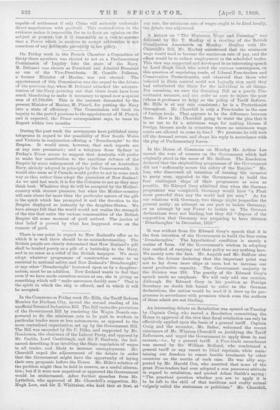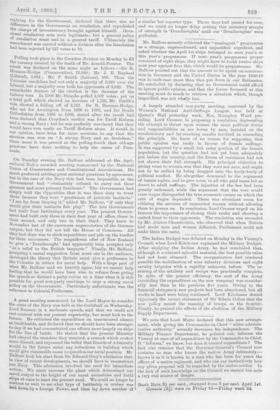An interesting debate on Retaliation was opened on Tuesday by
Captain Craig, who moved a Resolution committing the House to approval of the view that fiscal retaliation can only be effectively applied upon the basis of a general tariff. Captain Craig and the seconder, Mr. Salter, welcomed the recent utterances of Mr. Winston Churchill as justifying the Tariff Reformers, and urged the Government to apply them in real saigiest,—i.e., by a general tariff. A Free-trade amendment was moved by Sir William Holland, who condemned a general tariff or any resort to blind reprisals, while main- taining our freedom to resent hostile treatment by other countries on the merits of each case. He was ably sup- ported by Mr. Harold Cox, who asserted that none of the great Free-traders had ever adopted a non possumus attitude in regard to retaliation, and quoted Adam Smith's saying : "The practical question whether you are to apply it is to be left to the skill of that insidious and crafty animal vulgarly called the statesman or politician." Mr. Churchill,
replying for the Government, declared that there was no difference in the Government on retaliation, and repudiated the charge of inconsistency brought against himself. Occa- sional retaliatory acts were legitimate ; but a general policy of retaliation must end in a general tariff. Ultimately the amendment was carried without a division after the Resolution had been rejected by 227 votes to 70.











































 Previous page
Previous page